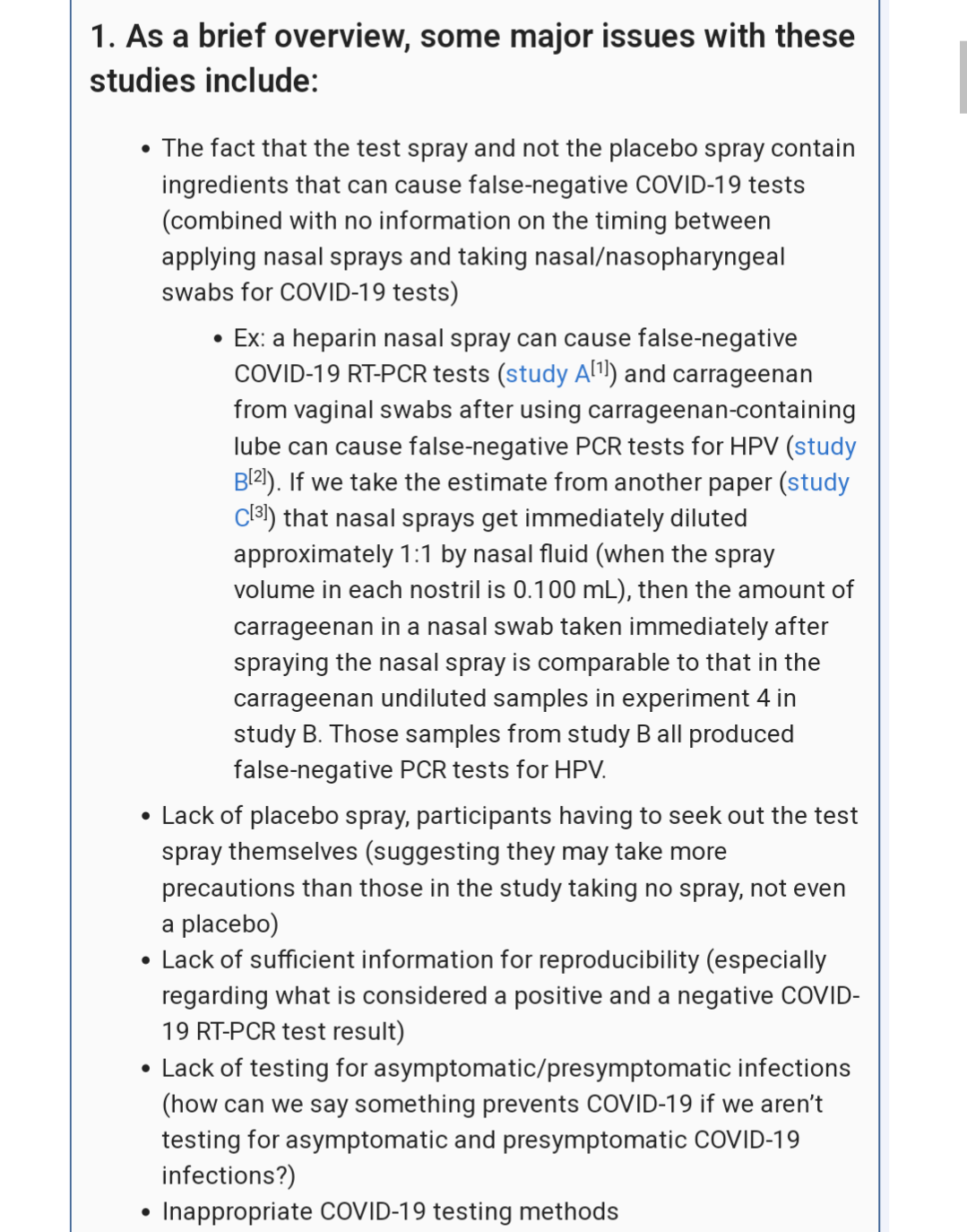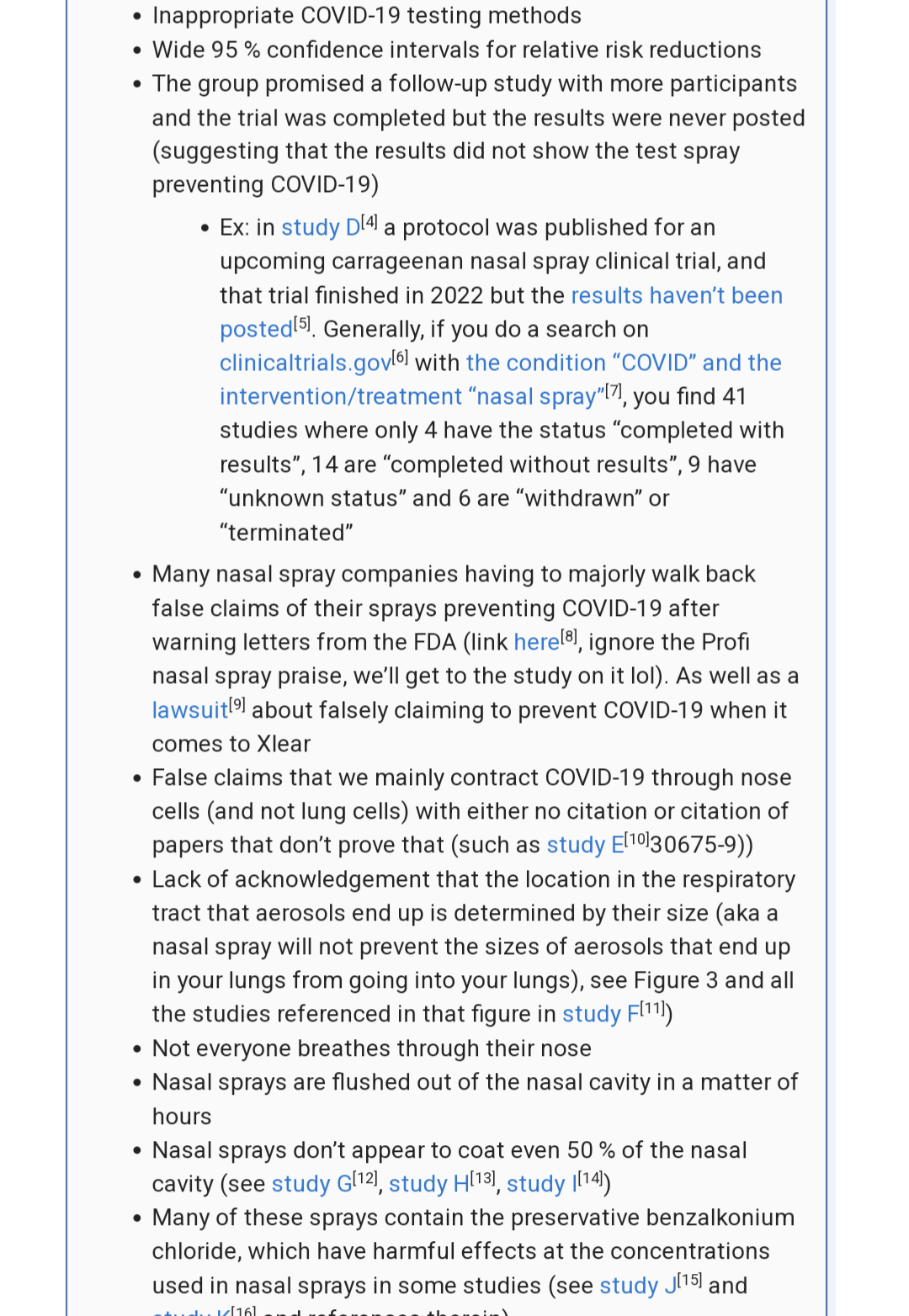I think this is the best writeup I've seen on the (lack of) evidence for the efficacy of nasal sprays as a "layer of protection" against #COVID / #COVID19
There is a lot of misinformation out there about nasal sprays preventing COVID-19. Unfortunately, there are no convincing studies showing that nasal sprays prevent COVID-19. The published studies investigating whether or not nasal sprays prevent COVID-19 each have major issues, which I will detail here.
I have a PhD in biochemistry and one of my PhD projects was on COVID-19. The main takeaway of this post is that there is no sound evidence that nasal sprays prevent COVID-19. Thus, nasal sprays should not be used for COVID-19 prevention in place of effective measures such as high-quality well-fitting respirators, ventilation and air purification.

